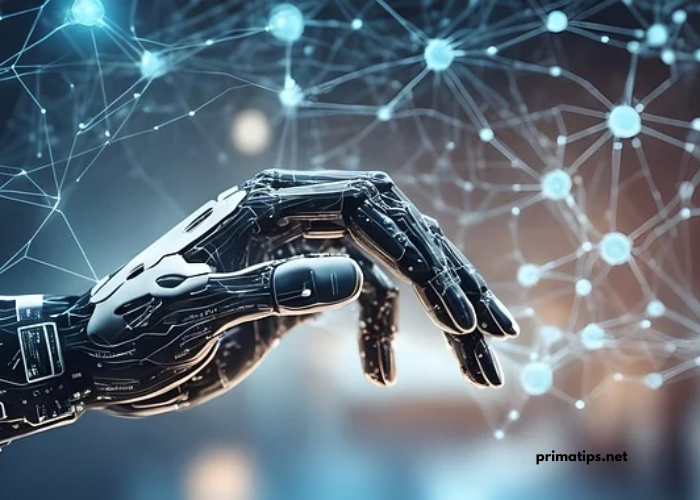The Rise of AI: Future Trends in Technology
Artificial Intelligence (AI) is no longer just a buzzword—it has evolved into one of the most significant technological advancements in recent decades. From self-driving cars to AI-powered personal assistants, AI is transforming industries, reshaping business models, and altering the way we interact with the world. As we look to the future, the rise of AI promises to bring even more profound changes to technology, society, and daily life. This article explores the future trends in AI technology, shedding light on the exciting potential that lies ahead.
Understanding Artificial Intelligence
What is Artificial Intelligence?
Artificial Intelligence refers to the simulation of human intelligence in machines designed to think, learn, and problem-solve like humans. AI encompasses a broad range of technologies, including machine learning, natural language processing, computer vision, and robotics. Unlike traditional computing systems, AI can analyze vast amounts of data, recognize patterns, and make decisions without explicit human input.
How AI is Shaping Today’s World
AI has already made its mark across various industries such as healthcare, finance, education, and entertainment. In healthcare, AI is used to analyze medical data and assist doctors in diagnosing diseases. In finance, AI algorithms help detect fraudulent transactions and make investment decisions. Meanwhile, AI-driven recommendation systems personalize user experiences on platforms like Netflix and Amazon. The rise of AI has led to groundbreaking innovations, and it’s only just beginning.
The Future of AI: Emerging Trends and Technologies
As AI continues to evolve, we are likely to witness the rise of several key trends that will shape its future development. Here are some of the most significant AI trends expected to dominate the technological landscape in the coming years.
1. Autonomous Systems and Robotics
The Expansion of Autonomous Vehicles
One of the most anticipated developments in AI is the advancement of autonomous vehicles (AVs). Companies like Tesla, Waymo, and Uber are at the forefront of this revolution. Self-driving cars have the potential to drastically reduce traffic accidents, increase road safety, and improve transportation efficiency. As AI algorithms and sensors become more advanced, autonomous vehicles will become more reliable and integrated into our daily lives.
The Role of Robotics in Automation
Robots powered by AI are expected to play an even bigger role in the future. In industries like manufacturing, logistics, and healthcare, robots can perform repetitive tasks more efficiently and with greater precision than humans. This will lead to increased productivity, cost savings, and the potential for new job opportunities in AI-driven industries. Moreover, AI-powered robots are being developed to assist elderly individuals, handle dangerous tasks, and aid in search-and-rescue operations.
2. AI in Healthcare: Transforming the Medical Landscape
Personalized Medicine
AI is set to revolutionize the healthcare industry by making treatments more personalized and tailored to individual patients. By analyzing genetic data, lifestyle factors, and medical histories, AI algorithms can recommend specific treatments that are more likely to be effective. This will lead to more efficient treatments, faster recovery times, and improved outcomes for patients.
AI-Powered Diagnostics
Machine learning algorithms are already being used to diagnose diseases such as cancer, diabetes, and heart disease with incredible accuracy. As AI models become more refined and trained on larger datasets, they will be able to identify patterns that might be invisible to human doctors. This could lead to earlier diagnoses, which is often critical in preventing the progression of many diseases.
3. Natural Language Processing (NLP): The Future of Communication
AI-Powered Chatbots and Virtual Assistants
Natural Language Processing (NLP) is another area of AI that is advancing rapidly. NLP allows machines to understand, interpret, and respond to human language in a way that feels natural. AI-powered chatbots, virtual assistants (like Siri, Alexa, and Google Assistant), and customer service bots are becoming more sophisticated and capable of handling complex interactions.
In the future, NLP will enhance communication between humans and machines, allowing for more seamless interactions and making AI a more integral part of our daily lives. Businesses will continue to use chatbots to enhance customer experiences, streamline services, and reduce operational costs.
Language Translation and Accessibility
One of the most exciting future applications of NLP is the ability to break down language barriers. Real-time AI translation services will allow people who speak different languages to communicate more easily. This will enhance global collaboration and enable companies to operate more efficiently in international markets. Additionally, AI-powered systems could help people with disabilities by converting speech to text and vice versa, offering a more inclusive future.
4. AI in Business: Enhancing Decision-Making and Efficiency
AI-Powered Analytics
In the business world, AI is revolutionizing decision-making by providing powerful insights into data. Advanced AI algorithms can process vast amounts of data in real time, identifying patterns and trends that would be impossible for humans to detect. By leveraging AI-powered analytics, businesses can make more informed decisions, optimize operations, and predict market trends.
Predictive Maintenance and Automation
AI will continue to enhance predictive maintenance in industries such as manufacturing and aviation. By using AI to monitor equipment performance in real-time, businesses can predict when machines will fail and perform maintenance before a breakdown occurs. This can reduce downtime, increase efficiency, and save costs in the long run.
5. AI Ethics and Responsible AI
The Need for Ethical Guidelines
As AI continues to evolve, the need for ethical guidelines and frameworks will become even more critical. There are concerns about AI’s potential to replace human workers, invade privacy, and perpetuate bias. It is crucial that AI development is approached responsibly, ensuring that these technologies are used for the benefit of society rather than causing harm.
Ethical AI involves creating systems that are transparent, accountable, and fair. Efforts are underway to establish global standards and regulations for AI, addressing issues such as data privacy, bias, and algorithmic transparency. This will be essential to ensure that AI is deployed in ways that align with societal values.
AI and Job Displacement
While AI will create new job opportunities, it also has the potential to displace certain types of work. Automation of routine tasks, such as data entry and manufacturing processes, could lead to job losses in some sectors. However, AI will also create new roles, particularly in fields such as AI development, data science, and robotics engineering.
To address the potential for job displacement, it is essential to invest in reskilling and upskilling programs to prepare workers for the new roles that will emerge as AI continues to evolve. Governments and businesses must work together to ensure that the workforce can adapt to these changes and thrive in an AI-driven world.
The Road Ahead: What’s Next for AI?
1. AI and the Future of Work
The impact of AI on the workforce is a topic of much debate. While some fear that automation will lead to widespread job loss, others believe that AI will augment human capabilities, making work more efficient and allowing individuals to focus on creative, strategic, and complex tasks. The key will be finding the right balance between automation and human involvement.
2. AI-Powered Creativity
In addition to its applications in data analysis and decision-making, AI is also making strides in creative fields. AI algorithms are already being used to generate music, artwork, and even written content. As AI becomes more adept at understanding human emotions and creativity, we can expect to see even more innovative applications in art, design, and entertainment.
3. AI in Sustainability and Environmental Protection
AI will play a crucial role in addressing global challenges such as climate change, resource management, and environmental conservation. By analyzing vast amounts of environmental data, AI can help optimize energy usage, predict natural disasters, and monitor wildlife populations. The ability to make more informed decisions about resource allocation and sustainability practices will be essential in mitigating the effects of climate change.
Conclusion: The Limitless Potential of AI
The rise of AI represents a paradigm shift in technology, offering unprecedented opportunities for innovation and improvement across all sectors. From healthcare to autonomous vehicles, AI has the potential to transform the way we live and work. However, as we move forward, it is essential that we approach the development and deployment of AI responsibly, ensuring that these technologies are used ethically and for the greater good of society.
In the coming years, we will likely witness even more groundbreaking advancements in AI, many of which are currently beyond our imagination. The future of AI is incredibly exciting, and its impact on technology, business, and everyday life will be profound. The key to unlocking its full potential lies in collaboration, regulation, and continuous innovation. As AI continues to evolve, we must remain vigilant in guiding its development to ensure that it benefits all of humanity.













